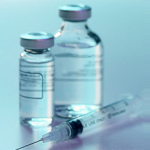Insulin
Insulin Facts
Insulin is a hormonal protein that aids the body’s metabolic functions in regards to fat and carbohydrates. It is a very important factor in the treatment and management of diabetes, as its impact on metabolism helps the body in glucose absorption. This is vital in the regulation of blood sugar levels. People who suffer from diabetes are prone to low insulin production, with those who suffer from type 2 diabetes also experiencing increased resistance to insulin’s effects. For this reason, insulin has become a valuable treatment tool for diabetics.
How It Works
In the body of a non-diabetic person, the pancreas produces insulin at a consistent rate. Small, yet frequent secretions help to ensure that blood sugar levels remain stable throughout the day. It is important that insulin production remains steady, as blood sugar should never be too high or too low. If blood sugar drops below what is considered to be a healthy range for any reason, insulin will help the body to break down the sugars present in the bloodstream to provide the body with fuel.
In the body of a diabetic, insulin levels are either not sufficient enough to do its job or the body is too resistant to insulin for it to do its job well. This means that sugars and other carbohydrates are not broken down properly. Rather than being burned as fuel, they are converted to fat and stored in the body. This can lead to obesity, high cholesterol, high blood pressure, and even heart disease.
Insulin as a Diabetes Treatment
Mild cases of diabetes may not require insulin treatments, but most of the more severe cases often do. When a person suffers from adult-onset type 2 diabetes, it is almost certain that they will need insulin therapy at one point or another. Insulin therapy works in one of two ways, though is most commonly enacted through a combination of both.
The first method of insulin treatment revolves around the general maintenance of insulin and blood sugar levels. One way of doing this is to use long-lasting insulin shots at set points during the day. This allows the body to maintain a relatively stable level of blood glucose unless altered through high sugar consumption or rigorous amounts of exercise. Another way of doing this is to use an insulin pump to more accurately simulate the natural production of insulin hormones by the pancreas in small amounts at a consistent rate.The second part of insulin treatment is more needs-based. Right before consumption of a meal which is high in sugar and/or carbohydrates, shots can be administered so that the body has enough insulin to deal with the sugar intake as it needs to. For those that use pumps, the carbohydrate content of the intended meal can be programmed in to provide a similar release without necessitating a needle injection.
Cautions
While insulin treatment is a valuable tool for diabetics, patients must be careful not to inject too much more than is needed. Overproduction of insulin can result in the reduction of blood sugar levels to the point of deficiency. In the worst of cases, this results in a condition known as hypoglycemia. When an overabundance of insulin in the body has led to hypoglycemia, the best method of rectifying the problem is to simply regulate blood sugar levels to a somewhat higher state by consuming slightly sugary foods. Those with glucometers or other means of measuring blood sugar levels can utilize these tools to help gauge their sugar intake and ensure that they have not overcompensated for the problem.
























